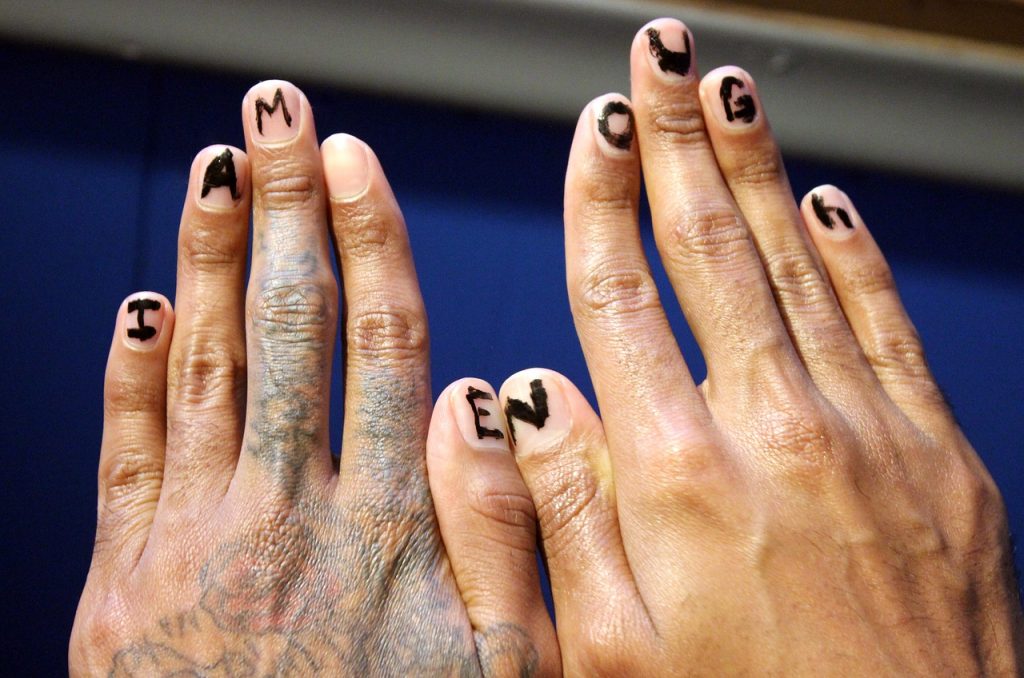
by Rupali Grover – Follow @browngirlmag

If you have experienced suicidal ideation, the first thing you are told is to speak an expert, perhaps at the National Suicide Prevention HotLine (1-800-273-8255).
What isn’t discussed often is how South Asians have felt worse when calling crisis lines. While desis are often hesitant to seek help for mental health, especially suicidal ideation, the fault isn’t solely ours. Crisis service providers play a part when they lack a proper level of cultural competency. Some non-desi workers wouldn’t understand the cultural stigma of being unmarried at a certain age or what it’s like to battle between values of two cultures. While some mental health workers receive diversity training, a class or a few articles aren’t enough to understand the depth of being South Asian. Once a non-desi colleague who was a mental health case manager said:
“It’s not my culture, so I don’t have to understand it.”
If you don’t make the effort to understand someone, how can you help them in a dire time of need?
[Read Related: Victim-Blaming Doesn’t Work: If You Want to Help, Listen to Victims First]
If you have had bad experiences with crisis lines, please don’t give up on getting help. Not vibing with a hotline counselor isn’t your fault. The crisis counselor could have a different communication style than you which can lead to misunderstandings. Suicidal hotlines CAN be a great and free resource when you’re talking to someone who is a good fit for you. Good crisis counselors know how to listen, won’t judge you, and can communicate to help you feel at ease. If a crisis counselor isn’t understanding you it’s okay to hang up. You have the power to choose who you speak to.
Since crisis calls get randomly routed call the hotline again to connect with a different person or try a different hotline. You may find that online forums support you better than speaking on the phone or maybe going to support group in person. Find the outlet that is best for you.
Often those with suicidal ideation feel relief when they process with someone so surround yourself with understanding people. It can be difficult too, to discuss these issues with your family and friends. As a desi, a common fear is that they’ll gossip about you. Yet, many people don’t find it helpful to be told to go to the hospital. Getting admitted to a psychiatric unit can be traumatizing, where a short-term stay may not solve your problems. So if it’s possible, turn to those around you in a time of need.
[Read Related: #BGSpeaksUp: Twitter Chat Sparks an Important Conversation on South Asian Mental Health]
The concept that being suicidal is weak or cowardly isn’t true. It takes a lot of courage to be vulnerable and ask for help. You don’t have to manage the burden of suicidal ideation on your own. There are people who are willing to help you, even if it seems like nobody cares.
Remember, nothing is permanent – things can change and get better. You can get through it.
If you need to talk to someone immediately about what’s on your mind, here is a list of additional resources that are available for you 24/7.
Resources:
Crisis Text Line: Text 741741
The Good Samaritan Hotline: 877-870-4673 or 212-673-3000
Imalive.org (online chat)
National Sexual Assault Hotline: 1-800-656-4673
The Trevor Project (For the LGBTQ Community): 1-866-488-7386
The National Domestic Violence Hotline: 1-800-799-7233
 Rupali Grover is a licensed clinical professional counselor, who has worked at rape crisis centers, community mental health centers, and managed care organizations for the past eight years. As a 30-something Indian woman, she hopes to provide insight and answers that other brown people in the diaspora may be looking for. Her work has also been featured on introvertdear.com, elephant journal, and
Rupali Grover is a licensed clinical professional counselor, who has worked at rape crisis centers, community mental health centers, and managed care organizations for the past eight years. As a 30-something Indian woman, she hopes to provide insight and answers that other brown people in the diaspora may be looking for. Her work has also been featured on introvertdear.com, elephant journal, and 



